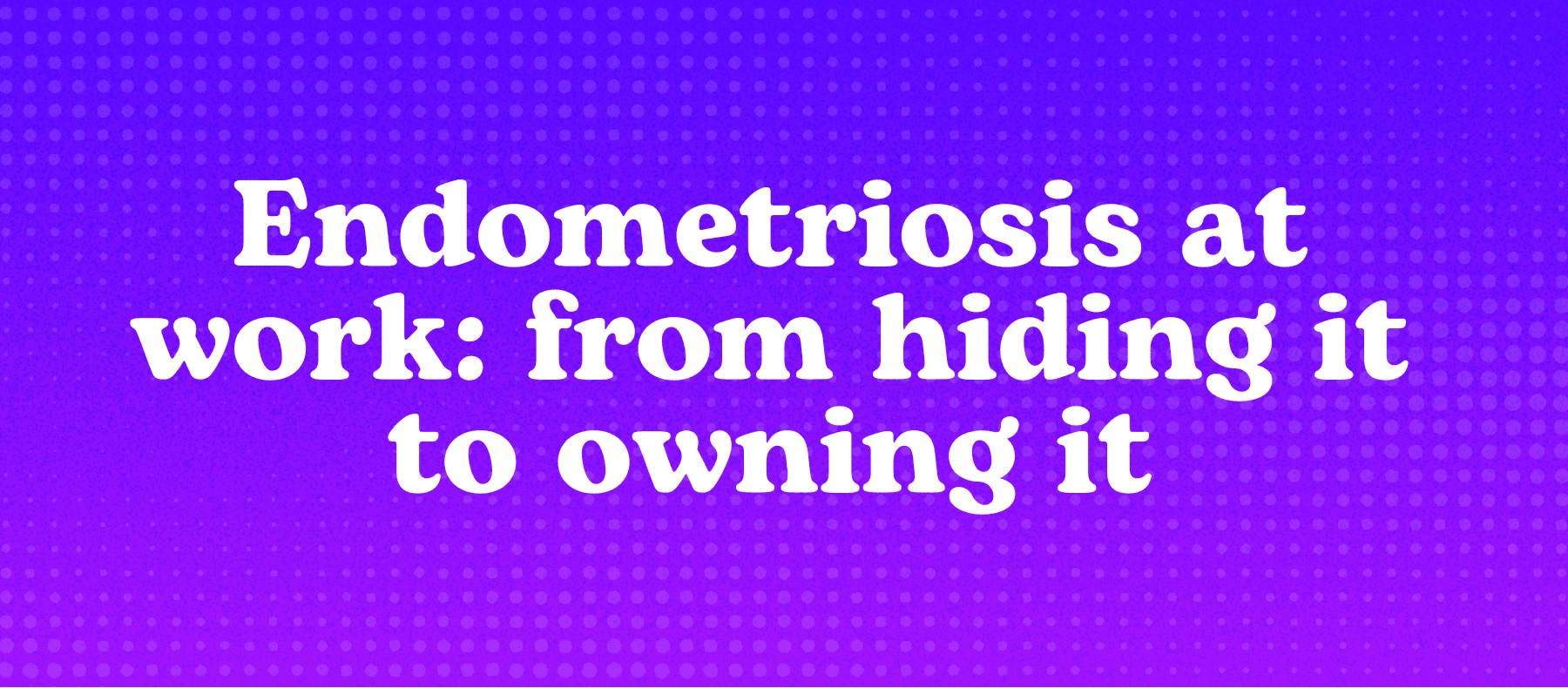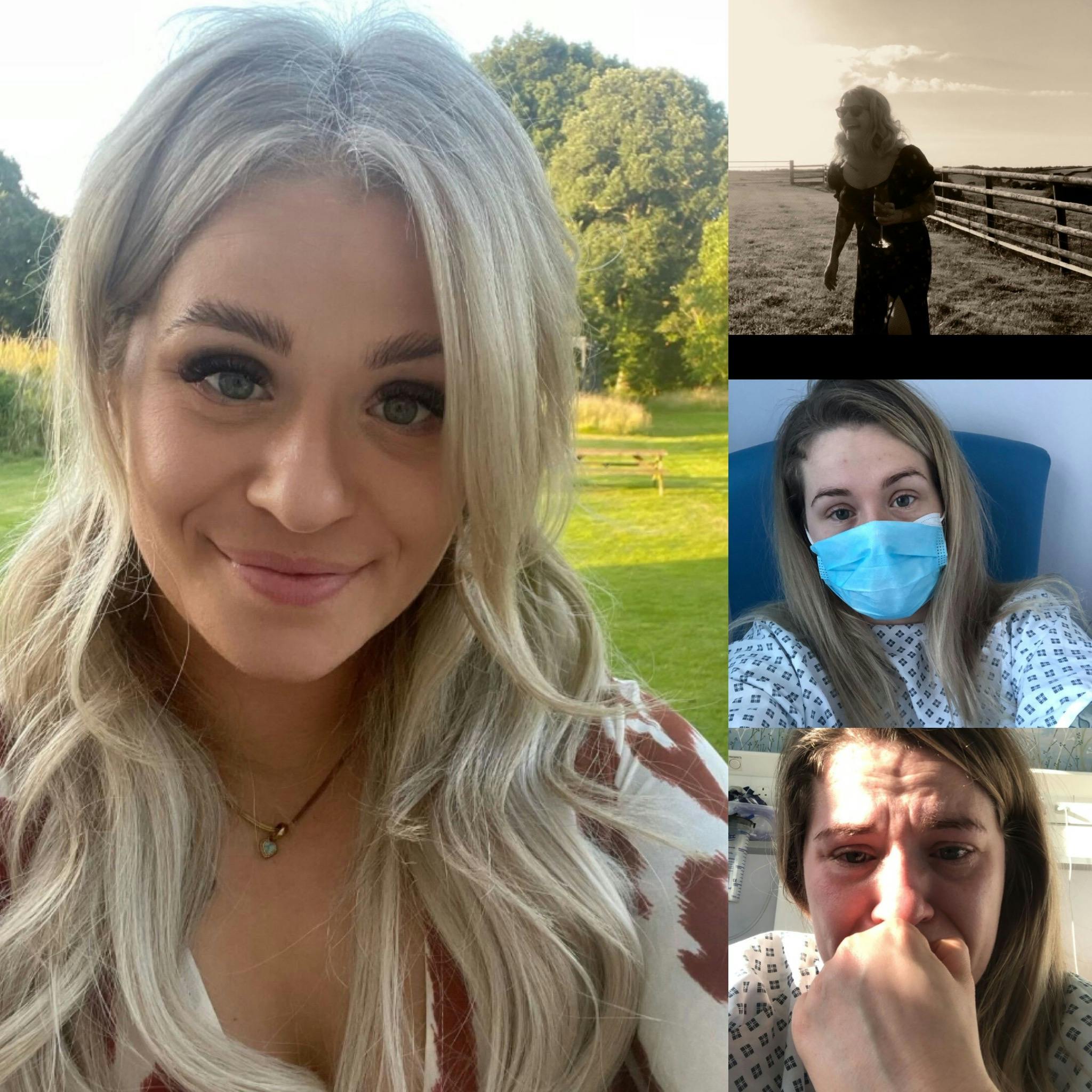Endometriosis at work: from hiding it to owning it
In this blog, Fliss Morse, Design Lead at Flexa, shares her experience of dealing with the challenges of endometriosis at work and finding the right company to support her.
14th Apr 2024

I have endometriosis, of course, I have a drawer of painkillers at the ready.
I was diagnosed with endometriosis when I was 24 after 8 years of going to the doctors with chronic pain. Endometriosis is a condition where a build up of cells (similar to the ones found in the womb) attach themselves to other parts of your body. It affects 1 in 10 women but takes an average of 7.5 years to diagnose.
I’d just moved to London, knew no one, and was beside myself with managing the pain, whilst maintaining a full-on role. I eventually saw an incredible female doctor who recognised what was going on and got me the help I needed - because she had endo too.
It baffled me that she could hold such a professional job and have the confidence to proclaim her condition.
Some of the best advice she gave me was “Don’t play down what endometriosis does to you, because other people will be quick to. But don’t let it become an excuse.”
I didn’t listen to her advice at the time.
I hid the pain from my employers, I lied out my ass to friends, I had daily panic attacks, and isolated myself.
Endometriosis symptoms I hid from my employers
- Chronic pain that left me incapacitated and trying to catch my breath
- Fatigue/exhaustion
- Depression and anxiety
- No periods, or a 3 month long period resulting in menorrhagia
- Shooting pains down my left leg

It doesn’t get any easier, but here are just some of the ways I’ve managed to cope with my symptoms day to day:
- Diet - focusing on whole foods
- Regular exercise, mainly weights or walking
- Painkillers
- Getting enough sleep
- Avoiding stress as much as possible
Endometriosis doesn’t make you weak, it makes you a warrior.
I wouldn’t tell people about my symptoms because I was worried about what the response would be.
Would they think I was weak? Fast forward 9 years >> now; I couldn't care less if someone thinks having endometriosis is weak.
Cause let me tell you, coping with the daily effects of it has made me the strongest version of myself.
I don’t hide it but I don’t let it rule my life.
I know when I cannot do something because of a flare up and have to take it easy. I’ve embraced the mundanity of managing my pain.
I freelanced for years because I was worried about letting an employer down.
I knew what a nightmare my health was, even if on my good days I worked twice as hard as everyone else.
Finding the right company for you
I’ve got my perfect job now. However, this wasn’t always the case.
I’ve mainly worked in male-dominated industries in London. The first was a Venture Capitalist, where talking openly about female reproduction just didn’t feel possible. Luckily I had a great friend there who acted as a confidante, but I needed to have understanding from my management and colleagues which sadly, I didn’t. It took me being hospitalised for them to take it seriously and by that point the damage had been done and the trust was gone. I was made redundant because my symptoms meant I couldn’t keep up with the demand.
Then I went to a men’s tailoring brand where they treated me diabolically. The less said on that, the better. They’ve gone into administration now. Sometimes Karma does come through 💅
After this, I was drawn towards a design agency, male owned but female dominated. This was actually a great company to work for, I was more open about my symptoms through the encouragement of my colleagues. Around this time my pain was unmanageable, I was travelling for 2 hours + a day and my health was at rock bottom. I was trying to work from home more but that wasn’t something they were prepared to support at the time.
I knew I couldn’t be in London anymore.
I found a role in another agency in Birmingham as a freelancer but that still involved going into the studio on a daily basis. What I needed was to be able to work from home, that’s the top and bottom of it. So I struck out on my own. I was a freelance designer for 2 years, opened a creative collective in 2019, and built up some really fantastic clients; they didn’t need to know about my endometriosis and that suited me. One of my retainer clients happened to be Flexa, co-founded by Molly Johnson-Jones. Molly’s story and attitude resonated with me and I was able to be overly honest about my health and an upcoming operation for endometriosis without fear of judgement. It was nerve wracking. I won't lie. But it was the best thing I ever did.
If you have endometriosis or are going after a diagnosis, tell people.
It doesn’t make you weak, it makes you a warrior.